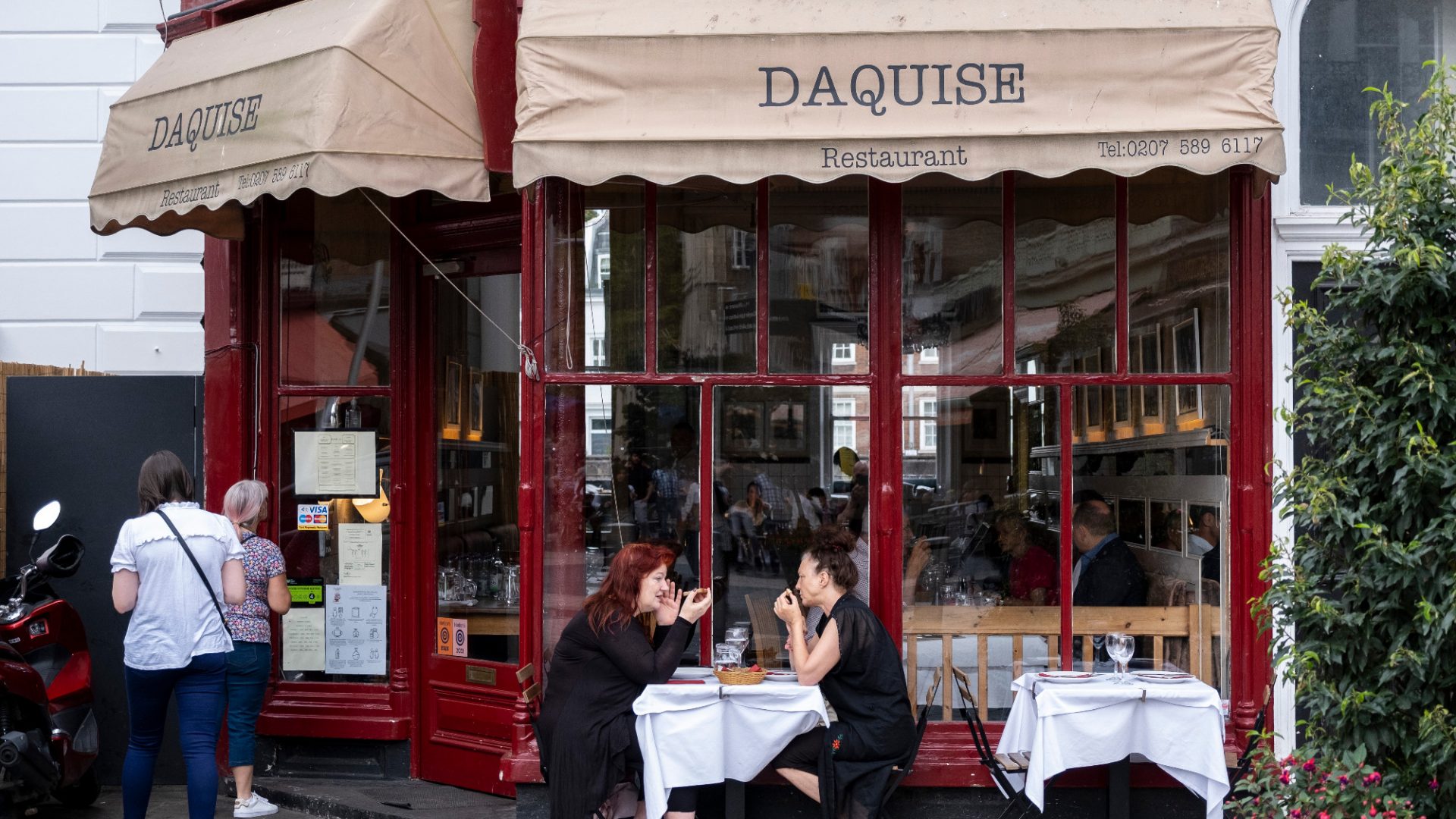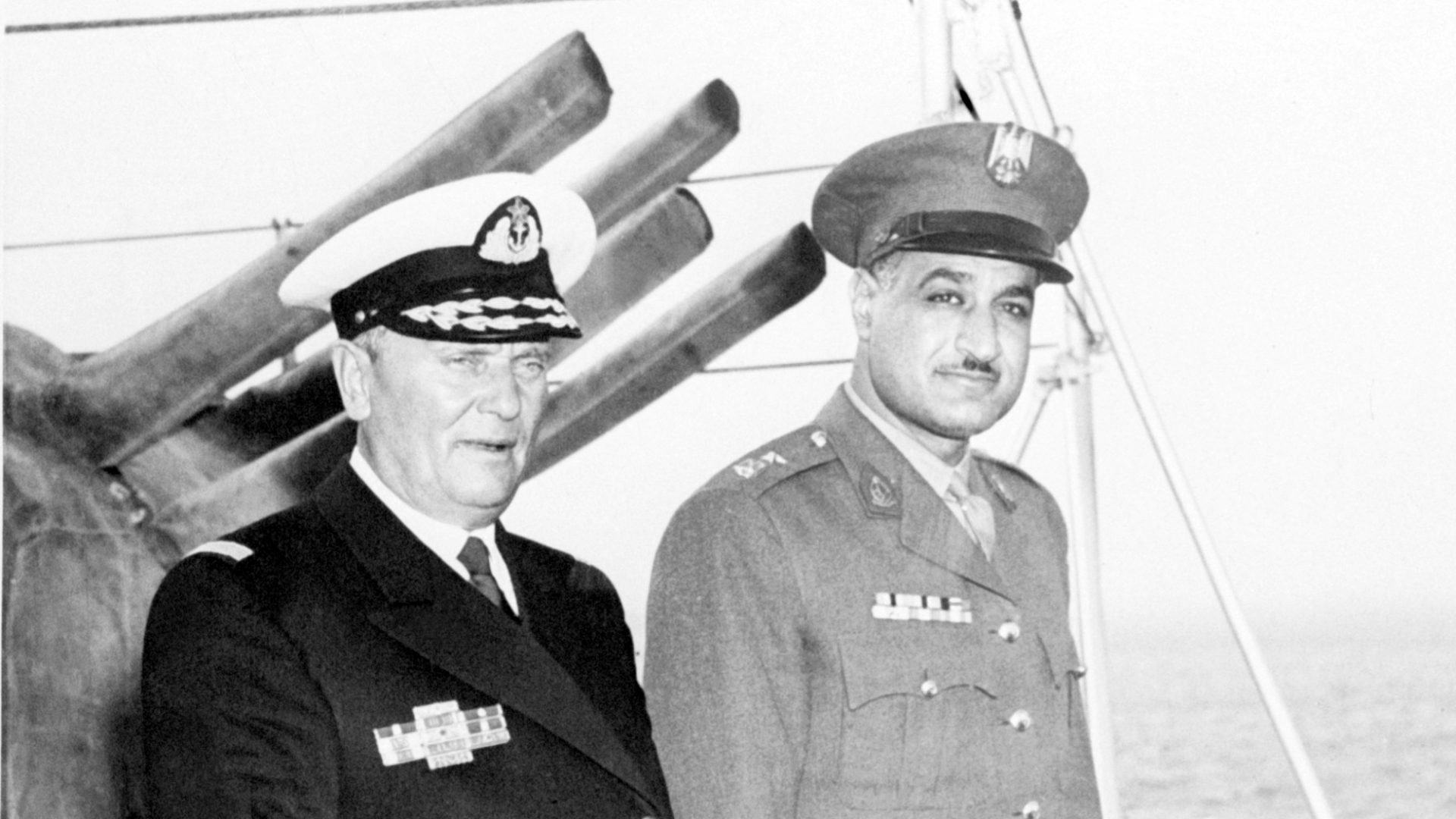No more bright purple borscht with dumplings, served tableside; no more fiery paintings of cavalry officers on yellowish walls; no more water jugs on windowsills positioned carefully for the easy topping-up of glass tumblers. No more romance.
It would appear the future of Daquise, London’s oldest Polish restaurant, is – literally – on uncertain ground. A 77-year-old business, a cherished part of the capital’s culinary history, could soon be gone.
According to a spokeswoman for Transport for London (TfL), plans are afoot. “Developing around South Kensington station will provide new homes and jobs – and help deliver step-free access for users of the station,” she told me. “The development will require vacating the hospitality and retail units on Thurloe Street, but we will give our tenants at least 12 months’ notice and we will work with them to find alternative accommodation on our estate or elsewhere.
“We recognise the uncertainty this brings for our tenants and we will continue to keep them updated so they are able to make appropriate decisions for the future of their businesses. We would hope to welcome tenants back to South Kensington once the development is completed.”
Unbearable stuff, isn’t it? Especially when the subject is Daquise, a Polish brasserie of tireless repute, where the food is more than proficient, the service soft, and the clientele a daily collection of mad characters. Each, I have no doubt, has a story to tell.
Daquise’s story is that it was founded in 1947 by a Polish man and his French wife. Then it was a sort of overflow canteen for the Polish Club (Ognisko Polskie) round the corner.
The name of the place is a portmanteau: Mr Dakowski and Louise, conflated. It’s a relic of a thriving postwar community; the excellent Polish/Baltic Ognisko restaurant is nearby.
Daquise has always been family-owned and well-loved. And, as is the case with so many independent, considered and beautiful restaurants in London, it has attracted a long list of celebrity diners.
This was where Christine Keeler used to meet the Russian naval attaché Yevgeny Ivanov, a relationship that triggered the Profumo scandal. Roman Polanski frequented the dining room while filming Repulsion with Catherine Deneuve during the 1960s. Before the fall of communism in Poland in 1989, president-in-exile Edward Raczyński is said to have used it as his unofficial headquarters between 1979 and 1986.
A flurry of reviews appeared a little over a decade ago after a fire ravaged the restaurant and led to a temporary closure. The late restaurant critic AA Gill returned in 2011, having eaten at Daquise while a student in the ’70s, and awarded it five stars; Australian critic Terry Durack went while reviewing for the Independent in 2006.
Jeremy Clarkson reportedly remains a rigorous fan – but don’t hold that against it. So too is the great French chef Pierre Koffmann.
Today Daquise is in the limelight not because of fire nor a listless desire to memorialise, but because of TfL’s plans to bulldoze. Presumably, luxury flats are in the mix.
The pedestrian walkways behind South Kensington tube station are prime real estate, home to the likes of Honest Burgers – rumoured to be paying £17,000 per month in rent, where Daquise is on a much older, less expensive lease. Whether there is the space or the money for this veteran to return when the new development is completed remains to be seen.
But it does not take a rocket scientist to identify a larger problem: part of the appeal of Daquise is the fact it is a living museum. To raze this version of it to the ground – its high ceilings, its classy red frontage, its wooden floors and whirling fans – will for ever consign a focal point of British-Polish culture to the history books.
In a modern property, would the same rope-pulled dumb waiter – so adored by tourists on Instagram – be installed; the same 1950s-style awnings; the same white tiles and the same white tablecloths? For want of a better word, such a vibe, at least this sort of atmosphere, cannot be replicated in a new building – with the unthoughtful materials used today.
Two friends and I headed in on a medium-busy Friday for lunch and our waiter seemed resigned. “It’s what happens these days. You can understand the desire to develop old buildings and build something new.
“Business is what it is. There would be a first refusal to return once that is done, but we don’t know when, if it does happen, or how much the rent would be.”
Simply, Daquise, it is glaringly apparent, would not survive such an upheaval. It just wouldn’t. Restaurants of its ilk never do. Imagine pulling up Sweetings, Wiltons or The Ivy and plonking them back in a new build at the foot of unaffordable flats. The prospect of elderly Polish immigrants coming in for their weekly sour rye and beetroot is resoundingly unconvincing.
A Polish acquaintance from years ago, Patrycja, told me: “It is a special place. A home away from home. I think these places should be protected. I know we need more housing but surely there are ways of saving historic landmarks and building new places for people to live?”
To lose Daquise would be devastating; a pin in a map being drawn of a soulless city. And it isn’t just the timelessness of it all, nor its beauty. The food really is worth saving. When my friends and I visited, we had dumplings, three for £7, each comforting and generous. One was filled with cheese, potatoes and onion, another with cabbage and mushrooms.
And there were fried sausages, marinated herring with cream. Dill-topped potato salad like a cosy green blanket, and fried eggs arrived bouncing atop veal schnitzel.
My friend’s beef goulash with brandy and buckwheat was deep, rich and penetrating with umami; sides of carrots in honey and ginger, roast potatoes and fried sauerkraut came in dainty white bowls to be dished out and shared. And the service: a warm welcome; wine by the glass poured from bottle to glass at the table.
Daquise is a restaurant of old-fashioned values, happy ideals, one where you feel, at once, safe, contented and a part of something, not a customer to spend. It is still a business – there’s money to be made in cabbage and potatoes – but it is an inclusive and wholesome one and parting with £60 each, replete and softly wined, came as no hardship. And couples, families, solo diners came and went in the time it took
us to enjoy a gentle afternoon.
A Polish one.
Poland, by the way, is worth mentioning again because it isn’t just about an independent business, nor specifically food and drink. Daquise is a cultural touchstone in an important facet of Britain: there are, recent figures show, about 700,000 Polish people living here, 130,000 of whom are in London.
Pre-Brexit there were more, and the readers and writers of this newspaper would hope that more return, I’m sure. So if nothing more, to wipe such a piece of their history seems shortsighted at best, dismissive at worst.
Flats, flats, flats. Of course we need them. But what is the point in having them if there is nowhere to go: no city for their residents to be a part of?




